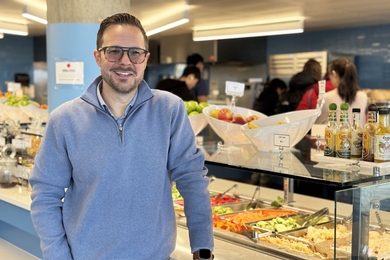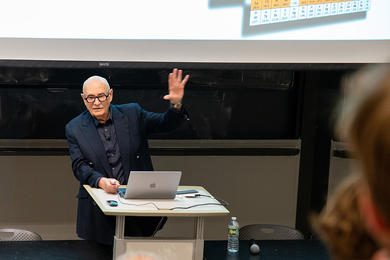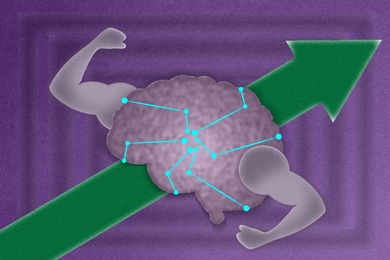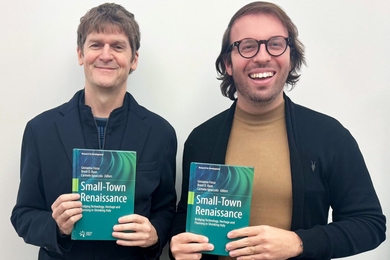The Howard Hughes Medical Institute (HHMI) has named Assistant Professor of Biology Sylvia L. Sanders as an assistant investigator in the field of cell biology.
An HHMI investigator is paid a salary by the Howard Hughes Medical Institute with a renewable appointment of up to seven years. The investigator's laboratory team is also supported by HHMI. All investigators hold faculty appointments at their host institutions. At MIT, HHMI investigators continue to teach, advise graduate students and serve on faculty committees.
Professor Sanders described her HHMI award as "an honor, one which frees me from monetary worries. This money supports the purchase of new equipment and supplies, and it pays the salaries of students, postdoctoral fellows and technical assistants in the lab."
A native of Kansas, Professor Sanders received the BA and MA degrees from the University of Kansas at Lawrence, and the PhD degree in 1992 from the University of California at Berkeley. She did postdoctoral research at the University of California at San Francisco and came to MIT in January.
Professor Sanders already had two major research successes before coming to MIT. The first was in collaboration with Randy Schekman at Berkeley on protein transport in cells; the second involved work with Ira Herskowitz in San Francisco on how components of a cell are asymmetrically distributed. "She is a pioneer in her area," said Phillip A. Sharp, the Salvador E. Luria Professor of biology and head of the department.
The present focus of Professor Sanders's work is "to understand how cells become asymmetric and polarized, how cells organize their cytoskeletons, and the mechanisms that different cells use to organize their cytoskeletons in different ways," she said. "Asymmetry on the cellular level is the basis for asymmetry on the organ-ismal level in many cases, and organization of the cytoskeleton is crucial for the development of normal skin and hair. Finally, there is a connection between cancer cells and abnormal cytoskeletons."
Professor Sanders expressed gratitude to HHMI for its support and long-term commitment to biomedical research, a personal interest of its founder, Howard Hughes.
"I feel very strongly about the value of basic research," she said. "It is only when we understand how cells are supposed to function that we can help fix them when something goes wrong. If I can contribute to the understanding of some disease at the molecular level or ultimately to participate in designing drug therapy, I will be ecstatic."
The Howard Hughes Medical Institute carries out biomedical research in collaboration with more than 60 US universities, academic medical centers, hospitals and other research institutions. Candidates for HHMI investigator awards are selected by a national peer review process, then reviewed by senior peers. This year, more than 300 scientists were nominated to receive HHMI awards.
The Department of Biology includes nine other HHMI investigators.
A version of this article appeared in MIT Tech Talk on June 4, 1997.





